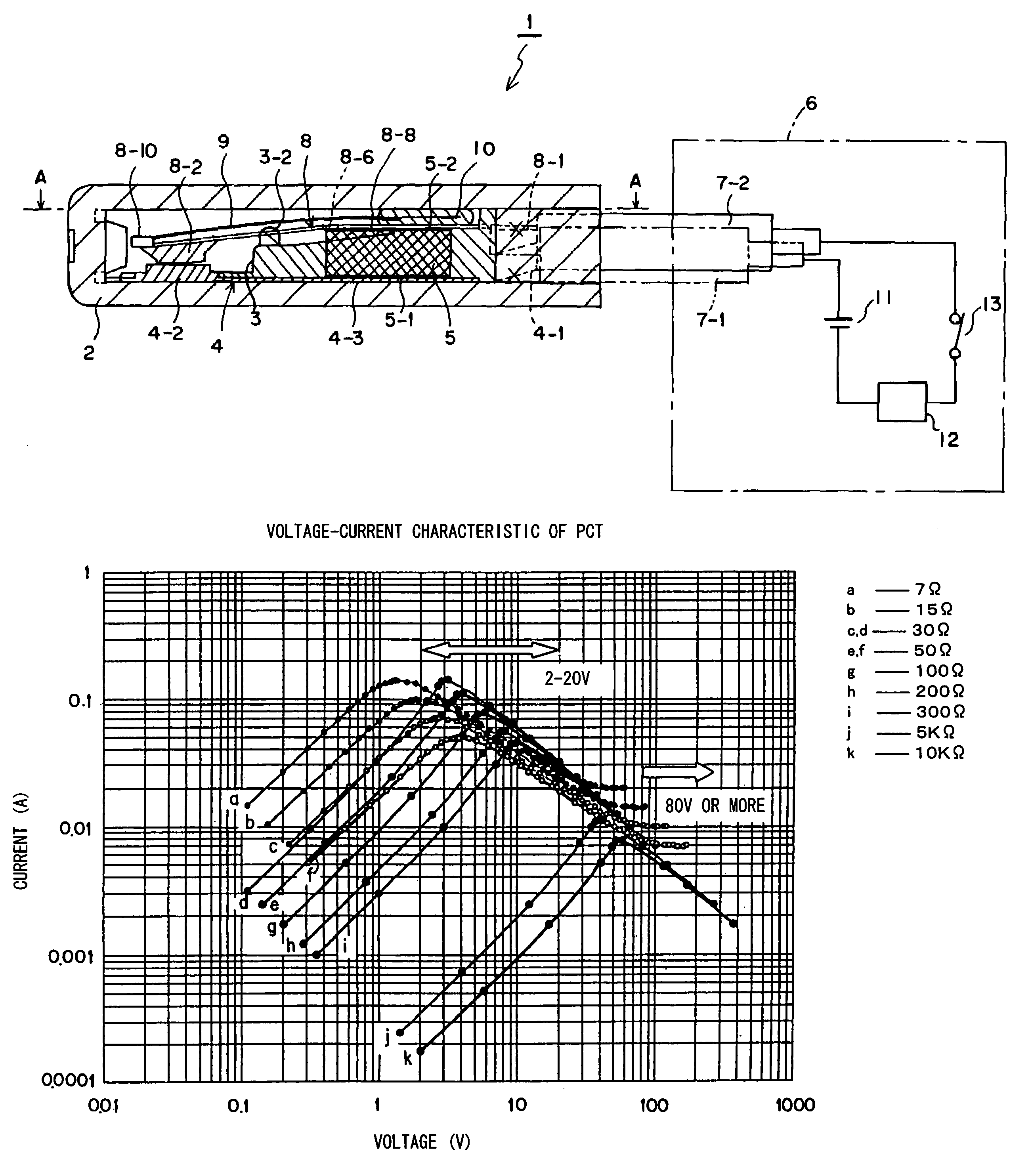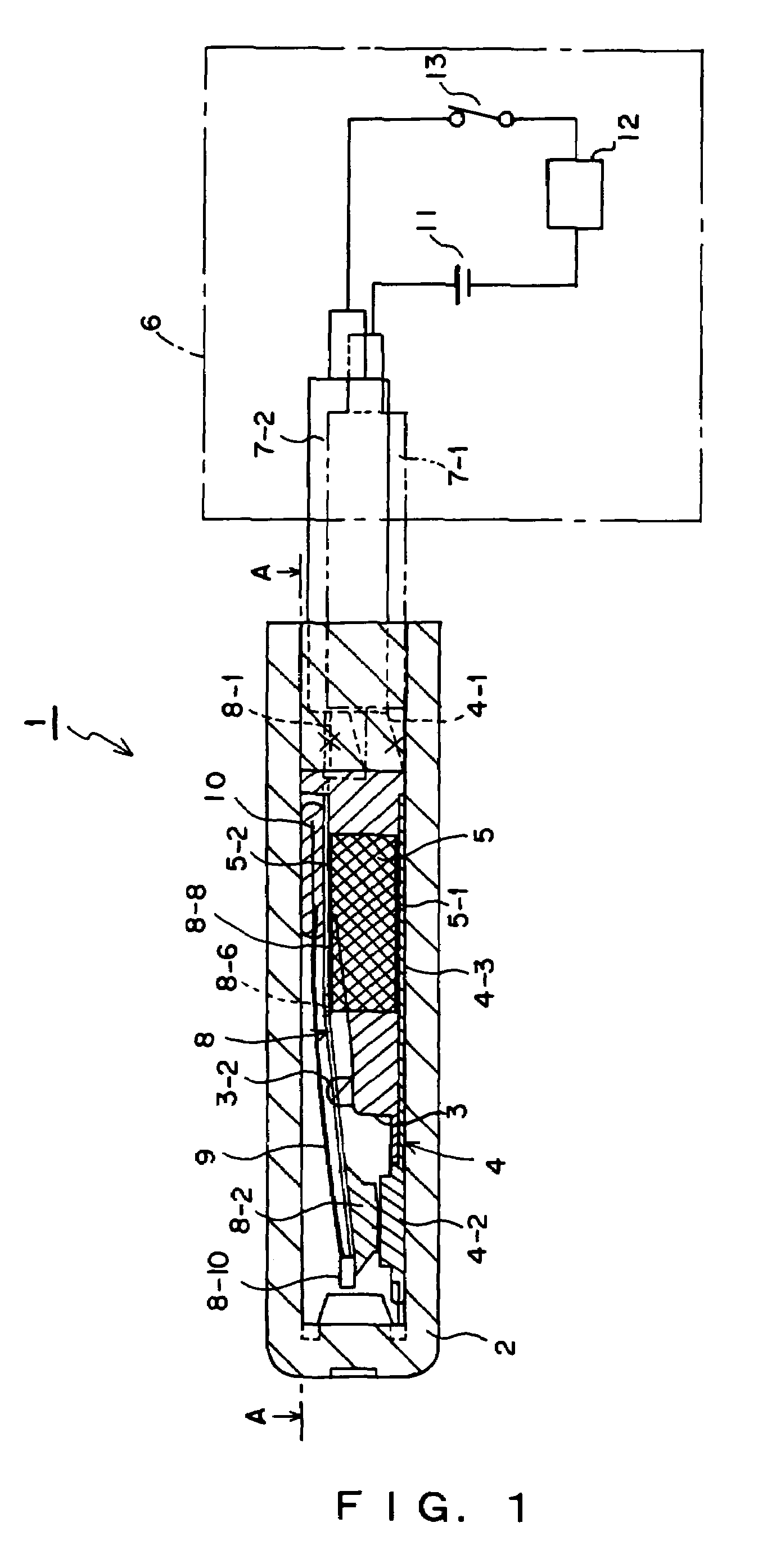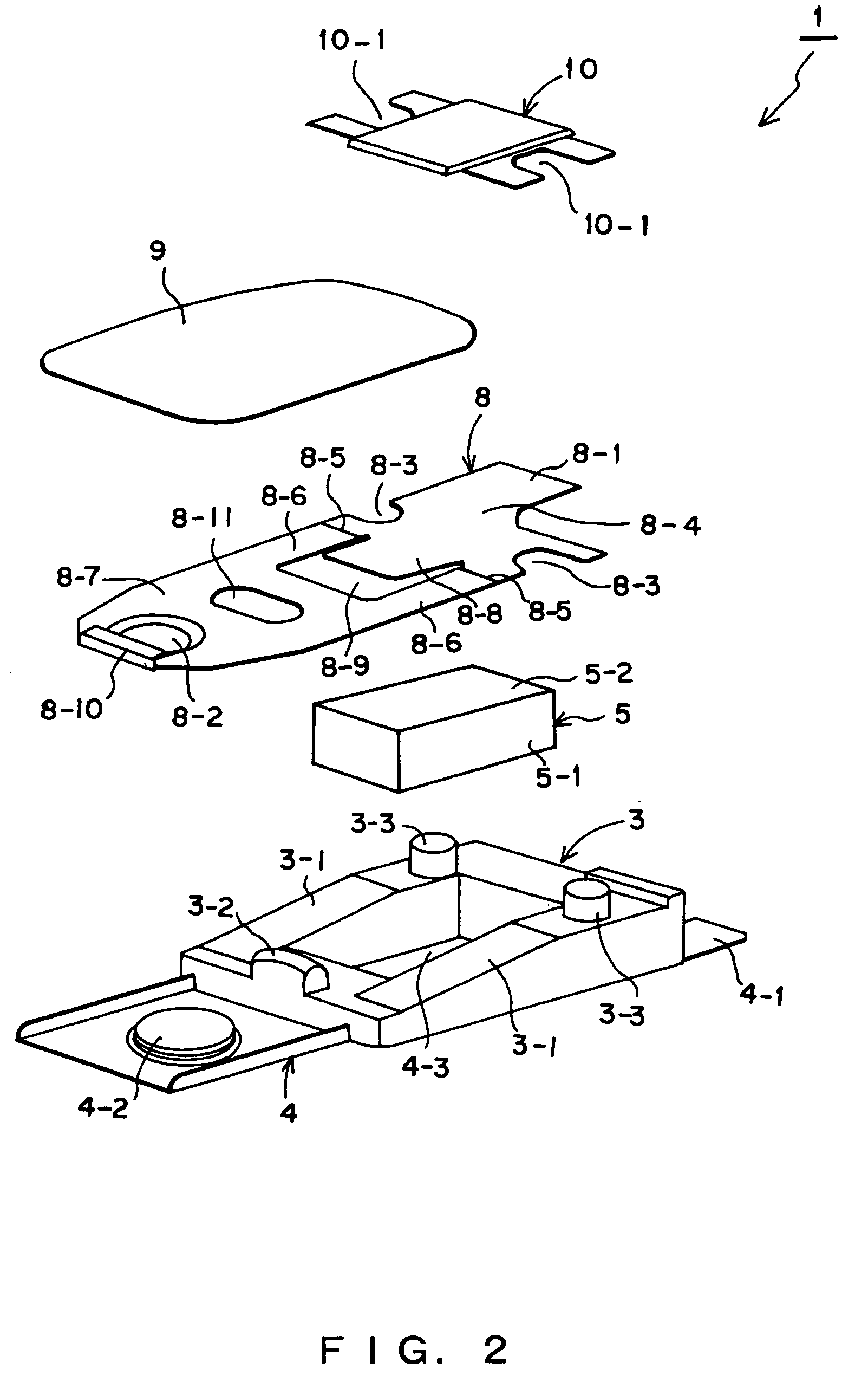Direct current cutoff switch
a cutoff switch and current technology, applied in protective switch details, relays, positive temperature coefficient thermistors, etc., can solve the problems of circuit short circuit, surge voltage, contact melting due to surge voltage, etc., and achieve the effect of extending use and preventing contact melting
- Summary
- Abstract
- Description
- Claims
- Application Information
AI Technical Summary
Benefits of technology
Problems solved by technology
Method used
Image
Examples
Embodiment Construction
[0077]The preferred embodiments of the present invention are described below with reference to the drawings. The direct current cutoff switch of the present invention embeds a PTC with a special characteristic, which is described later.
[0078]FIG. 1 shows the sectional side view of a thermostat as the direct current cutoff switch in one preferred embodiment of the present invention and an external circuit connected to this thermostat.
[0079]FIG. 2 is an exploded perspective illustration showing the internal structure of the thermostat.
[0080]As shown in FIGS. 1 and 2, first, a thermostat 1 comprises a housing 2, a frame-shaped support member 3 fixed on one inner wall surface of the housing and a fixed plate 4 as an inductive fixed member inserted between the base of the support member and the inner wall surface of the housing 2. In the frame of the support member 3, a quadrangular prism-shaped PTC 5 as a non-linear resistor is accommodated.
[0081]The shape of this PTC 5 is not limited t...
PUM
 Login to View More
Login to View More Abstract
Description
Claims
Application Information
 Login to View More
Login to View More - R&D
- Intellectual Property
- Life Sciences
- Materials
- Tech Scout
- Unparalleled Data Quality
- Higher Quality Content
- 60% Fewer Hallucinations
Browse by: Latest US Patents, China's latest patents, Technical Efficacy Thesaurus, Application Domain, Technology Topic, Popular Technical Reports.
© 2025 PatSnap. All rights reserved.Legal|Privacy policy|Modern Slavery Act Transparency Statement|Sitemap|About US| Contact US: help@patsnap.com



